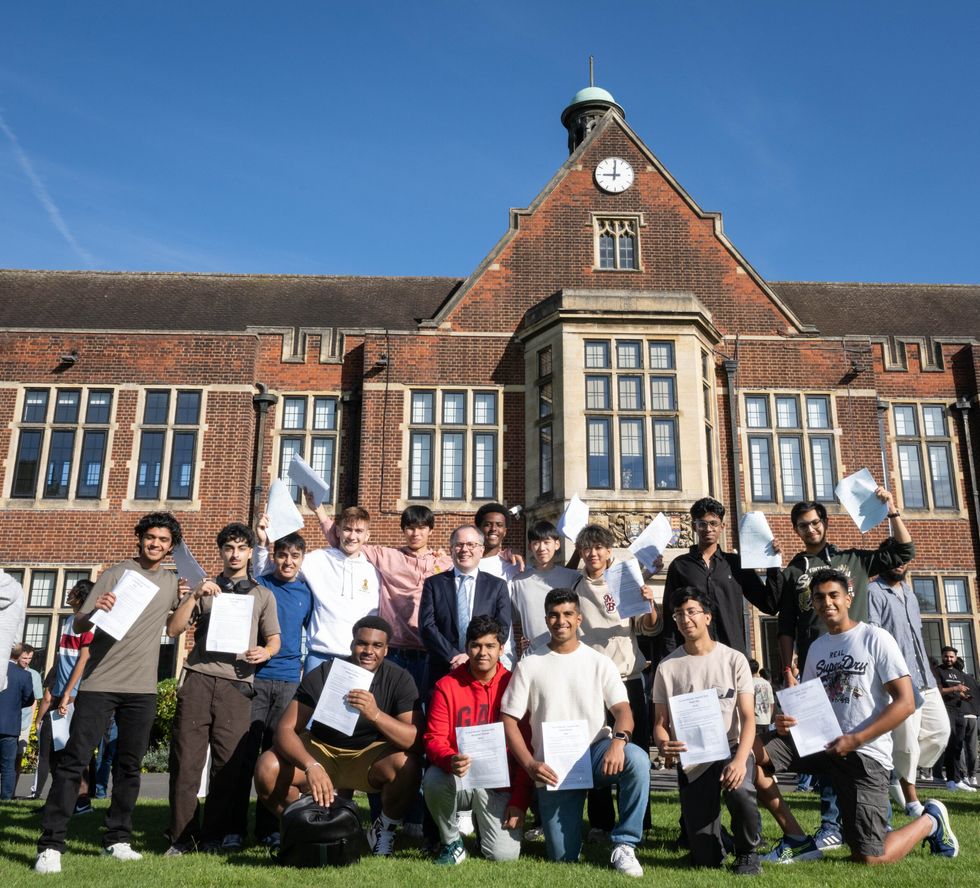STUDENTS at Queen Elizabeth’s School, Barnet, have achieved strong A-level results, with more than 95 per cent of grades at A*–B for the 19th consecutive year.
Among the 173 final-year students, over half achieved A* grades, and nearly a quarter of the year group earned straight A*s.
This year’s results follow a series of university offers, including 62 from Oxford and Cambridge—a new record for the school. Additionally, 55 per cent of students secured places at universities ranked in the World Top 5 by QS, and 22 of the UK’s 24 Russell Group universities made offers to the students, a statement said.
A total of 582 students sat at A-levels, an increase of 40 compared to last year. While economics, mathematics, and the sciences remained popular, there was also increased interest in other subjects, including english, music, philosophy, government and politics, and product design.

Year 13 students at the school have excelled in various extra-curricular activities. Two robotics teams represented Britain at the Battle for Vegas, being the only non-North American teams to participate in the VEX event.
In music, Arjun Patel, Nathan Woodcock, and Tharun Dhamodharan reached the national final of the Pro Corda chamber music festival as part of an under-19 saxophone quintet.
Shivam Singh, Yash Patel, and Om Patel won a design competition hosted by Homerton College, Cambridge, with a project aimed at protecting construction workers’ hearing.
Headmaster Neil Enright expressed his congratulations to the students, acknowledging their hard work and determination. He highlighted how the students embraced various extra-curricular opportunities through the school’s QE Flourish programme, contributing to their success in gaining such prestigious university offers.
Enright also noted the role of the QE Futures programme in helping students prepare academically and develop broader skills and interests. He emphasised that while outstanding results are a key outcome, they are not the sole purpose of an education at QE.
“This year sees the opening of a new studio for drama and oracy; there has been much focus on helping students communicate orally, alongside being able to communicate in writing in projects and exams. We also have ambitious plans for future investments into sports facilities, following on from new facilities for music and robotics in recent years," he added.
"We are delighted to be welcoming them into our fast-developing alumni community, QE Connect, which provides them with opportunities to support one another in their future endeavours and to continue to help those following in their footsteps."





